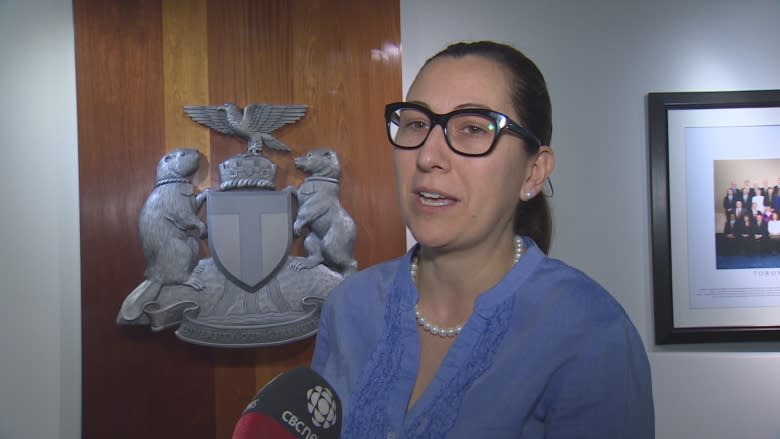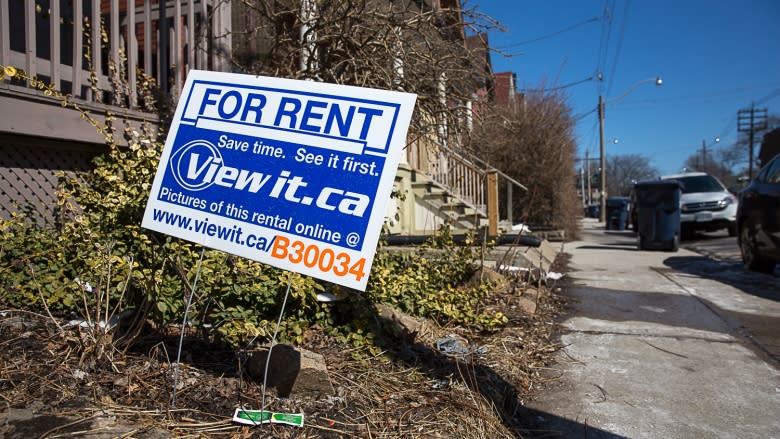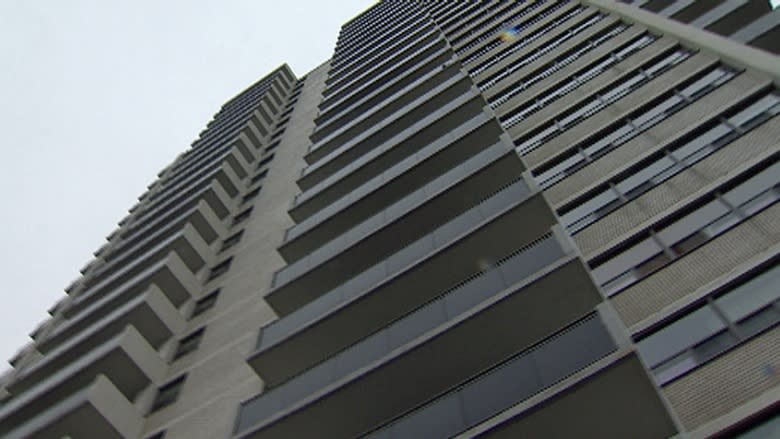Special Toronto committee meeting on Monday will focus on rental issues
Two city councillors are holding a special meeting to get council's support to pressure the Ontario government to reform the Residential Tenancies Act.
Councillors Josh Matlow and Ana Bailao will bring both the affordable housing and tenant issues committees together Monday to plan how to do that.
They want the committees to urge council to request that the Ontario government rewrite the law that allows landlords to apply for rent increases to cover "extraordinary costs".
It's something that landlords are only supposed to be granted in cases of major renovations or when they see their property taxes or utilities undergo an "extraordinary" spike.
But in its No Fixed Address investigative series, CBC Toronto has heard from tenants across the city about substantial rent hikes without these upgrades — and how it can force long-term tenants out of a home.
Eliminate 'price gouging'
Bailao, who represents Ward 18, Davenport and chairs the city's affordable housing committee, said tenants in Toronto need to know their rights more than ever, given that they are faced with high rents and a limited supply of rental units.
"The rental market of today is not the rental market of 30 years ago in Toronto," she said. "The legislation has to adapt. The government has to work with the new realities by protecting consumers."
Bailao said the province needs to change the law to maintain affordability and improve supply of rental housing, to improve the relationship between tenants and landlords, and to prevent what she called "price gouging" by landlords.
She and Matlow want city staff to provide them with data on the housing market — looking at supply, vacancy rates and the other factors driving up the cost to rent or buy. They say that can be used to get all three levels of government to craft policy specific to those issue.
Bailao said what is needed is not only more supply of rental housing in the city but also changes to Ontario's Residential Tenancies Act.
The province has indicated that a review of the legislation is underway.
That review needs to include input from tenants, landlords, developers and municipalities, Bailao said.
"It needs to be a balanced approach and we want to be at the table," she said. "There are real loopholes in this legislation that need to be fixed."
In a letter to her committee members, Bailao said: "Toronto's rental housing market has become increasingly unaffordable for many people.
"Rents are rapidly rising beyond the rate of inflation and on the turnover from one tenant to the next the unit is frequently being rented to the highest bidder," she wrote. "Due to historically low vacancy rates and a lack of new purpose-built rental supply, more and more residents are finding themselves precariously housed by renting condominiums."
The committee will also ask the city's chief planner to return with recommendations about the creation of laneway homes by the end of the year. It also wants to explore the possibility of a vacancy tax, something Mayor John Tory said Wednesday he supports.
There are currently about 65,000 vacant homes in the city and such a tax could prompt property owners to put more of those back on the market, the mayor said this week.




